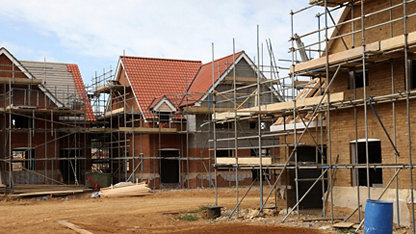RICS is supportive of the elements of this Budget which deliver positive change in the built and natural environment. We believe housebuilding needs to be a government priority to increase supply. Changes to the property tax regime in respect of capital gains tax and stamp duty will stimulate market activity, raise revenue in the future, and overall incentivise investment in the private residential sector. The announced changes to furnished holiday lets will improve supply of long-term rental properties and therefore will help serve the public interest.
RICS would have liked the Budget to set out in more detail the scope and extent of the government’s ambition to deliver more and better housing across the UK. Housing supply remains a challenge in many parts of the country and the public needs safe, sustainable, energy-efficient, and affordable homes. In particular, the planning system needs resourcing appropriately to provide a stable and predictable framework for development.
RICS welcomes the announcement of £400m investment for twenty new towns as part of the Long-Term Plan for Towns which will unlock development plans made by local decision-makers. Additionally, RICS supports the deepening of the devolution deal with the North East Mayoral Combined Authority, which brings this region into line with Greater Manchester and West Midlands
There is currently a gap between the ambition for decarbonisation and resources being made available to help deliver it. Both residential and commercial property owners will need support to transition to a low-carbon future and currently there is insufficient support to achieve it. RICS is in a strong position to offer insight to government to help create new markets for retrofit and reduce the current risk of commercial property assets becoming stranded as ESG requirements drive occupier demand for more sustainable property.
RICS is supportive of investment in new technology to achieve energy security and net-zero ambitions which will help meet sustainability targets, but there is much more to do to decarbonise the electricity grid and develop more sustainable supplies of energy.
The devolved administrations of Scotland, Wales, and Northern Ireland will benefit from £560 million in additional funding in 2024-25 as well as from the projects the Chancellor announced today.
Justin Young, RICS CEO, said:
“While choices have to be made in the current economic backdrop, property related measures stimulate the economy and support growth and net zero ambitions. The extension of long term plans for towns in the budget today will help some areas, and we support local decision makers being given more control over their areas, as per the North East Trailblazer Deal.
We look forward to hearing more on specifics such as placemaking and supply side measures, alongside supporting our high streets and net zero targets, ahead of any election.”
The view from our Chief Economist, Simon Rubinsohn:
From a macro perspective, this was never going to be an easy Budget to make sums add up. A net fiscal giveaway of £13.9bn (0.5% of GDP) in 2024/25 was announced by the Chancellor which should provide a modest boost for the economy as the year wears on. This has been reflected in calendar year growth forecasts from the Office for Budget Responsibility (OBR) of 0.8% (2024) and 1.9% (2025), both of which are at the upper end of the range of projections. But significantly, in per capita terms this translates into a broadly flat picture for at least the next twelve months which may be more material when it comes to thinking about the political implications of this package of measures. Meanwhile inflation is seen as settling below the 2% target which is somewhat different from the more cautious profile envisaged by the Bank of England in its own assessment last month. The OBR’s forecasts in this area are more in-line with the consensus and should provide some added comfort that base rates will start heading down during the second half of the year; money markets have been pencilling in around 75bps of cuts over this period.
Jeremy Hunt was predictably able to reiterate the message that he is on course to meet his fiscal targets but public sector net debt is still envisaged remaining above 90% for the duration of the forecast period. Moreover, despite the decision to stick with the planned increases in public spending, there is still likely to be a considerable challenge in keeping to the headline numbers in the next parliament; current plans are for a 2.3% real terms cut to unprotected departmental spending from 2025/26.
To the extent that the OBR analysis has anything to say about real estate, it envisages an encouraging rise in residential transactions to almost 1.1 million in the coming financial year which is an uplift of almost 150,000 compared with the November assessment, helped in part by the cut in CGT. Commercial activity is also seen as picking up from recent lows but only in a limited way. Meanwhile (and disappointingly), private dwellings investment (in effect, housebuilding) is viewed as likely to contract again this year and be largely flat in 2025. Whether the recent announcement from Michael Gove around brownfield development and change of use are successful in delivering on their ambitions, the OBR forecasts don’t project an uplift in dwellings investment until 2026.













